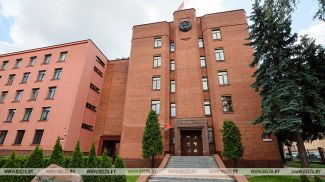MINSK, 23 June (BelTA) – Plans have been made to encourage the use of electric vehicles in Belarus and raise their total number up to at least 10,000 by 2025. The figures are stipulated by the program on developing the network of charging stations and electric-powered vehicles in Belarus. The document has been published on the website of the Belarusian Energy Ministry, BelTA has learned.
In late 2015 there were 27 registered electric-powered vehicles in Belarus. The draft program on developing the network of charging stations and electric-powered vehicles in Belarus till 2025 stipulates an optimistic scenario and a pessimistic one. The former expects that the number of electric cars in Belarus will be close to 32,700 by 2025 while the latter expects the number of electric vehicles to be as low as 9,960. Expected electricity consumption per annum in 2016-2025 has been calculated taking into account the two possible scenarios.
Developers of the program believe that Belarus has sufficient industrial potential to make and assemble electric vehicles, electric traction motors, and charging stations. Without a government policy meant to encourage owners of electric vehicles the adoption of electric-powered vehicles will be slow. The possible incentives include preferential loans, state subsidies, forfeiture of customs duties and recycling fees, a lower transportation tax, and preferential electricity tariffs.
The draft program draws heavily from foreign experience and provides for building the charging infrastructure at homes, in public places, and at work. The existing chain of conventional refueling stations can be used as well as free and parking-meter parking lots in addition to free space near residential and public buildings.
The program is supposed to be implemented in 2016-2025. The program's implementation is expected to reduce carbon dioxide emissions and the consumption of fuel and energy resources in addition to fixing reduced electricity consumption at night. The program is expected to cost $242.8 million in line with the optimistic scenario or $83.6 million in line with the pessimistic scenario. The program can be funded by direct investments and investments on terms of public private partnership.













